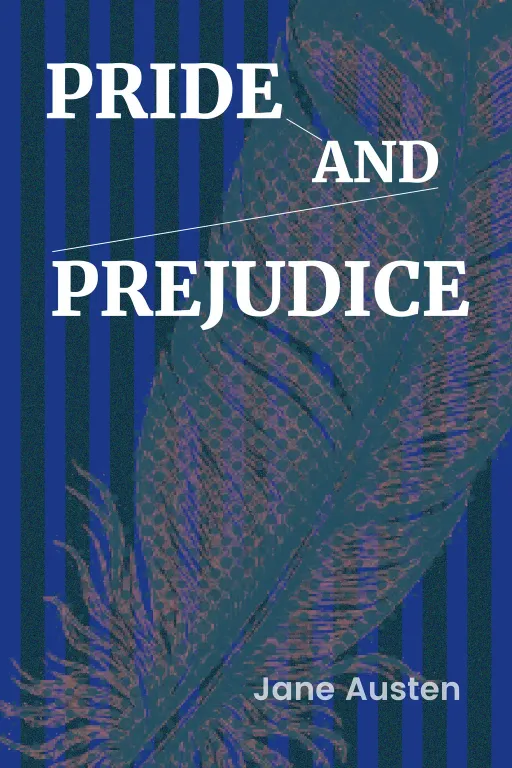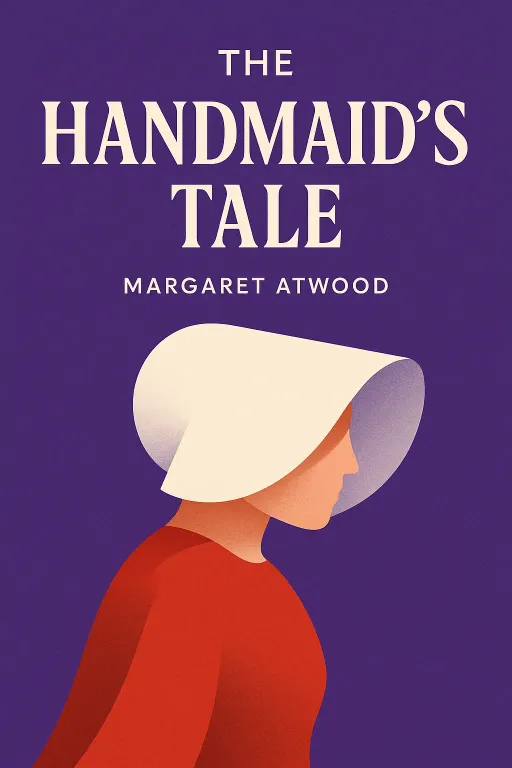
Pride and Prejudice
10 minIntroduction
Narrator: Imagine a world where a single conversation, a single dance, could determine your entire future. In early 19th-century England, for a woman without an independent fortune, marriage was not merely a romantic aspiration; it was a financial and social necessity. For the five Bennet sisters, whose family estate is entailed away to a male cousin, the arrival of two wealthy, eligible bachelors in their quiet neighborhood is an event of seismic importance. This high-stakes social battlefield, where reputation is currency and first impressions are everything, is the setting for Jane Austen's timeless novel, Pride and Prejudice. The book masterfully explores how snap judgments and social arrogance can blind individuals to the truth of themselves and others, questioning whether love can truly conquer the powerful forces of pride and prejudice.
First Impressions Are a Dangerous Foundation
Key Insight 1
Narrator: The novel establishes early on that in a society obsessed with status, first impressions are swift, powerful, and often deeply flawed. The central conflict is ignited at the Meryton assembly, a local ball that serves as the first meeting point for the Bennet sisters and the newly arrived wealthy party from Netherfield Park. Mr. Charles Bingley, with his amiable nature and handsome fortune, is an instant success. He is charming, attentive, and dances with many local ladies, including the eldest and most beautiful Bennet sister, Jane, whom he dances with twice—a clear sign of his admiration.
His friend, Mr. Fitzwilliam Darcy, however, makes a disastrously different impression. Possessing a fortune that dwarfs even Bingley's, Darcy is aloof, arrogant, and dismissive of the local society. He refuses to be introduced to any new partners, declaring the assembly beneath him. The defining moment comes when Bingley encourages him to dance with Elizabeth Bennet. Within her earshot, Darcy delivers a cutting remark: "She is tolerable; but not handsome enough to tempt me." This single, prideful comment cements his reputation as a disagreeable, arrogant man and, more importantly, deeply wounds Elizabeth's own pride. Her immediate and powerful prejudice against him is formed in this instant, setting in motion a chain of misjudgments that will define their relationship for much of the novel.
Prejudice is Easily Fed by Deception
Key Insight 2
Narrator: Elizabeth’s negative opinion of Darcy makes her susceptible to further confirmation of his wickedness, which arrives in the form of the charming militia officer, Mr. Wickham. Wickham presents himself as a wronged man, spinning a compelling and sympathetic tale for Elizabeth. He claims to have been the godson of Darcy's late father, who had promised him a valuable church living. However, according to Wickham, the proud and jealous Mr. Darcy defied his own father's wishes and cruelly denied him this inheritance, leaving him financially ruined.
Wickham’s story is a masterful piece of manipulation, perfectly designed to prey on Elizabeth’s existing prejudice. His handsome face and easy manners stand in stark contrast to Darcy’s reserved coldness, and Elizabeth readily accepts his narrative without question. This deepens her animosity toward Darcy, solidifying her belief that he is not only proud but also cruel and unjust. Her judgment is so clouded that she fails to see the warning signs in Wickham's character, even as her friend Charlotte Lucas makes a very different, though equally controversial, choice. Charlotte, prioritizing security over romance, accepts a proposal from the ridiculous Mr. Collins, a decision Elizabeth finds incomprehensible but which highlights the harsh realities facing women and serves as a pragmatic counterpoint to Elizabeth's idealism.
A Painful Truth Can Shatter a Worldview
Key Insight 3
Narrator: The novel's central turning point arrives not with a confession of love, but with a confrontation fueled by anger and misunderstanding. While visiting Charlotte in Hunsford, Elizabeth is shocked when Mr. Darcy, who has been visiting his aunt, Lady Catherine de Bourgh, makes an unexpected visit and an even more unexpected marriage proposal. The proposal itself is an insult. Darcy confesses his ardent love for her but spends most of the speech detailing all the reasons he shouldn't love her—her inferior social connections and the embarrassing behavior of her family.
Furious, Elizabeth vehemently rejects him. She accuses him of ruining her sister Jane's happiness by separating her from Bingley and of destroying Mr. Wickham's life. Stunned by her accusations, Darcy departs, but the next day he delivers a long letter to her. This letter systematically dismantles Elizabeth's entire worldview. Darcy admits to persuading Bingley away from Jane, but explains he did so believing Jane's affections were not serious. More shockingly, he reveals the truth about Wickham: far from being denied his inheritance, Wickham had squandered it, attempted to elope with Darcy's 15-year-old sister for her fortune, and left a trail of debt and deceit in his wake. As Elizabeth reads and re-reads the letter, she is forced to confront her own blindness. She realizes her prejudice had made her a poor judge of character, and the shame of her misjudgment marks the beginning of her profound transformation.
True Character is Revealed in Crisis, Not in Comfort
Key Insight 4
Narrator: Months later, Elizabeth's feelings continue to evolve during a trip with her aunt and uncle that takes her, unexpectedly, to Pemberley, Darcy's grand estate. There, she hears nothing but praise for him from his housekeeper, who describes him as a kind and generous master. When Darcy himself appears, he is transformed—gracious, gentle, and eager to please her and her relatives. For the first time, Elizabeth sees the man behind the pride and begins to deeply regret her rejection of him.
This fragile new understanding is shattered by a crisis: news arrives that her youngest sister, Lydia, has foolishly eloped with the treacherous Mr. Wickham, an act that threatens the entire Bennet family with social ruin. In her distress, Elizabeth blurts out the news to Darcy, assuming the scandal will end any chance of a future with him. To her astonishment, however, Darcy does not retreat in disgust. As Elizabeth later learns from her aunt, Darcy secretly takes it upon himself to resolve the crisis. He hunts down the couple in London, pays off Wickham's massive debts, and bribes him into marrying Lydia, saving the Bennet family's reputation. He does all of this without any expectation of thanks, motivated by a sense of responsibility and his deep, unwavering love for Elizabeth. This selfless act, performed in the family's darkest hour, reveals his true, honorable character far more than any social pleasantry ever could.
Love Requires the Humbling of Both Pride and Prejudice
Key Insight 5
Narrator: The final obstacles are overcome not by grand gestures, but by the unintended consequences of an adversary's actions. Darcy's formidable aunt, Lady Catherine de Bourgh, having heard rumors of a potential engagement, storms into the Bennet home to forbid the match. She confronts Elizabeth, demanding she promise never to accept a proposal from Darcy. Elizabeth, with her characteristic wit and independence, refuses to be intimidated and flatly rejects Lady Catherine's demands.
Ironically, this confrontation is the very thing that seals the couple's fate. When Lady Catherine recounts the conversation to Darcy, her story of Elizabeth's refusal to promise gives him a glimmer of hope—if Elizabeth were truly set against him, she would have said so. Encouraged, he returns to Longbourn and proposes again. This time, the proposal is one of mutual respect and humility. Both acknowledge their past faults—his pride, her prejudice—and confess their transformed feelings. Their engagement, along with the happy reunion and engagement of Jane and Bingley, brings the novel to a satisfying close. The Bennet family's future is secured not just by advantageous marriages, but by unions founded on genuine understanding, personal growth, and mutual respect.
Conclusion
Narrator: The single most important takeaway from Pride and Prejudice is that true connection and happiness are impossible until we are willing to look past our initial judgments and confront our own flaws. Elizabeth and Darcy could only find love after their respective pride and prejudice were humbled by painful truths and selfless actions. They had to learn to see each other not as a collection of social attributes and first impressions, but as complex, flawed, and ultimately worthy individuals.
Jane Austen’s masterpiece endures because it challenges us to examine our own lives. In a world that moves faster than ever, where snap judgments are the norm, how often do we allow our own pride to blind us or our prejudices to write a story about someone before we know the facts? The novel leaves us with a timeless question: Are we brave enough to admit when we are wrong and to see the world, and the people in it, not as we first assume them to be, but as they truly are?









